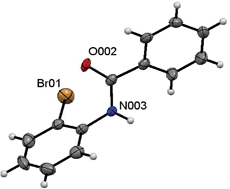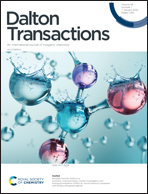An unsymmetrical covalent organic polymer for catalytic amide synthesis†
Abstract
Herein, we present the first report on the Covalent Organic Polymer (COP) directed non-classical synthesis of an amide bond. An economical route has been chosen for the synthesis of APC-COP using p-aminophenol and cyanuric chloride. APC-COP acts as a smart, valuable and sustainable catalyst for efficient access to the amide bond under mild conditions at room temperature in 30 min. APC-COP exhibits selectivity towards carboxylic acids over esters. The key features of this protocol involve the variety of parameters, viz. wider substrate scope, no use of additive and recyclability, which makes this approach highly desirable in gramscale synthesis. Moreover, we have shown the practical utility of the present method in the catalytic synthesis of paracetamol.



 Please wait while we load your content...
Please wait while we load your content...